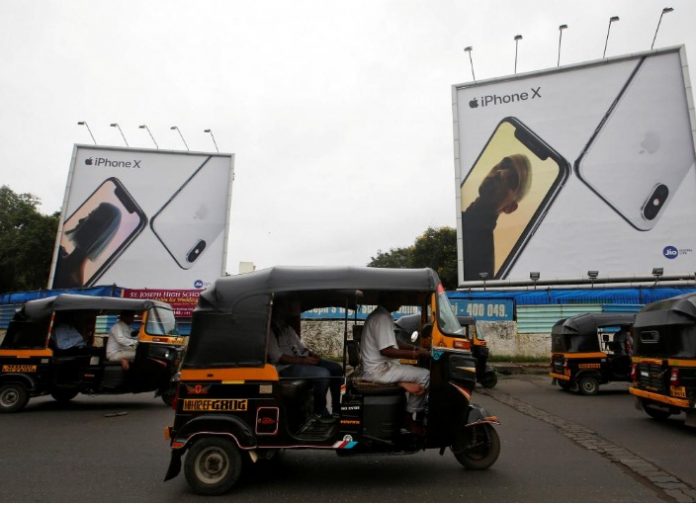
BENGALURU – Software engineer Samee Alam was ready to take the big leap and buy an iPhone in this week’s Diwali festival sales, but at the last minute he opted for cheaper Chinese competitor OnePlus instead.
Alam, 27, spends hours on his phone watching shows, surfing and shopping, making him the perfect target for Apple, Inc. as it strives to raise sales among India’s 1.3 billion consumers.
But in a country where the average per capita income is around $2,000 a year, even the cheapest of this year’s new iPhones, the XR at 76,900 rupees ($1,058), costs twice as much as many of the alternatives.
Hong Kong-based Counterpoint Research says that iPhone sales are falling as a result. From three million phones in 2017, sales may sink to two million this year, according to their estimate, the first decline in four years.
More than half of those sales will come from cheaper older models, and the lack of progress in India was among problems cited by Chief Executive Officer Tim Cook when he gave a disappointing holiday outlook last week.
Even in the premium segment, smartphones that cost more than $400, Apple lagged Samsung and China’s OnePlus in the third quarter.
“I have never used an iPhone and I was keen on getting my hands on one but it didn’t make sense,” says Alam, who works for one of the raft of firms to have invested in the southern city of Bengaluru, often called India’s Silicon Valley.
“I look for storage, camera and processor in phones and cheaper alternatives like OnePlus are more value for the money. The new iPhones cost almost 100,000 rupees – I can get three good phones for that price or even a decent gaming laptop.”
Solid Mac sales and the high unit price of iPhones meant Apple’s total revenue of $2 billion in India last year was still double that of OnePlus, which only sells mobile phones. But Counterpoint’s data says that gap will also shrink.
OnePlus’ India head Vikas Agarwal told Reuters this week that 10-15 percent of new customers in recent months have been defectors from Apple, suggesting even some loyalists are opting out of upgrading their handsets. (Reuters)







